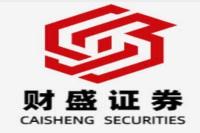中德汽车产业合作:新能源与智能网联汽车时代的双赢之路
Meta Description: 深入探讨中德汽车产业合作现状及未来趋势,聚焦新能源和智能网联汽车领域,分析双赢合作策略,解读中德汽车供应商总裁/CEO圆桌会议成果,并提供专家见解和行业预测。关键词:中德汽车合作,新能源汽车,智能网联汽车,汽车产业合作,双赢策略,中德汽车供应商,汽车产业转型升级。
Imagine this: two automotive giants, Germany and China, joining forces not just for economic gain, but for a cleaner, smarter future. This isn't a pipe dream; it's the very essence of the recent 26th German Automotive Suppliers’ Presidents/CEOs Roundtable Conference in Shanghai. The buzz? Unprecedented collaboration on electric vehicles (EVs) and intelligent connected vehicles (ICVs). This isn't just about boosting sales figures; it's about tackling climate change, reshaping global mobility, and creating a truly sustainable automotive ecosystem. We're talking about a win-win situation of epic proportions, one that requires open dialogue, fair trade practices, and a shared commitment to innovation. Think of the technological breakthroughs, the job creation, the environmental benefits – it's a game-changer. This article will delve deep into the intricacies of this burgeoning partnership, examining the opportunities, challenges, and the strategic pathways towards a brighter, more sustainable future for the global automotive industry. We'll dissect the outcomes of the conference, analyze expert opinions, and provide an insider's perspective on the future of this vital collaboration. Buckle up, because this ride is going to be electrifying!
新能源汽车:合作的基石
The automotive world is undergoing a seismic shift. It's no longer just about horsepower and speed; it's about sustainability and efficiency. And in this new paradigm, battery technology, charging infrastructure, and the entire EV supply chain are paramount. The recent conference highlighted the critical need for strengthened collaboration between Chinese and German companies in the EV sector. This isn't about one country dominating; it's about leveraging each other's strengths. Germany's expertise in engineering and precision manufacturing complements China's advancements in battery technology and massive domestic market.
Think about it: Germany's automakers bring decades of experience in precision engineering and high-quality manufacturing, while China boasts a booming domestic market and rapidly developing battery technology. Imagine the potential synergies! Joint ventures, technology sharing, and mutual investment could propel both nations to the forefront of the global EV race. This isn't simply about producing more EVs; it's about creating a superior product, one that's both environmentally friendly and commercially viable. The conference underlined the importance of creating a level playing field for all participants, ensuring fair competition and preventing protectionist measures that could stifle innovation.
Here's a breakdown of key collaboration areas:
| Area of Collaboration | German Strengths | Chinese Strengths | Potential Synergies |
|----------------------|--------------------------------------|--------------------------------------|-------------------------------------------------|
| Battery Technology | Advanced battery management systems | Large-scale battery production | Joint development of next-generation batteries |
| Charging Infrastructure | Grid integration expertise | Extensive network deployment capabilities | Optimized charging solutions for both markets |
| Supply Chain | Established supply networks | Cost-effective manufacturing | Secure and efficient global supply chains |
| R&D | Advanced engineering and design | Innovative material science | Breakthroughs in EV performance and efficiency |
Furthermore, standardization is pivotal. Differing standards across regions create barriers to entry and hinder efficient market expansion. Harmonizing standards for battery technology, charging protocols, and safety regulations is a crucial step towards creating seamless cross-border trade.
智能网联汽车:通往未来的高速公路
Beyond EVs, the conference emphasized the importance of collaboration on intelligent connected vehicles (ICVs). ICVs represent a paradigm shift in automotive technology, integrating advanced driver-assistance systems (ADAS), autonomous driving capabilities, and sophisticated connectivity features. Germany's strengths in automotive software and advanced sensor technology, combined with China's expertise in large-scale data processing and 5G infrastructure, creates a formidable partnership.
The development of ICVs requires significant investment in research and development (R&D), as well as the establishment of robust data security and privacy frameworks. A collaborative approach could expedite the development of advanced safety features, reducing traffic accidents and improving road safety globally. Moreover, the sharing of data and expertise would accelerate the development of autonomous driving technologies, leading to safer and more efficient transportation systems.
This collaborative effort isn't just about technological advancement; it's about creating a safer and more efficient transportation system. Imagine highways with autonomous vehicles smoothly navigating traffic, reducing congestion and improving fuel efficiency. This is the promise of ICV collaboration, and it's a promise worth pursuing.
挑战与机遇
While the potential for collaboration is immense, challenges remain. These include:
- Regulatory hurdles: Differing regulatory frameworks in both countries can complicate joint ventures and cross-border trade.
- Intellectual property protection: Robust mechanisms are needed to protect intellectual property rights and ensure fair competition.
- Cybersecurity concerns: The increasing connectivity of vehicles raises cybersecurity concerns that must be addressed proactively.
- Data privacy regulations: Harmonizing data privacy regulations is crucial for facilitating data sharing and collaboration.
Overcoming these challenges requires a concerted effort from both governments and industry players. Open communication, transparent regulatory frameworks, and a commitment to fair competition are essential for building trust and fostering lasting collaboration.
常见问题解答 (FAQ)
Q1: What are the main benefits of collaboration between German and Chinese automotive companies?
A1: Collaboration leverages the strengths of both countries, leading to faster innovation, cost-effective manufacturing, and access to broader markets. It also facilitates the development of sustainable and technologically advanced vehicles.
Q2: What are the key areas of cooperation in the EV sector?
A2: Key cooperation areas include battery technology, charging infrastructure, supply chain optimization, and R&D.
Q3: How can regulatory hurdles be overcome to foster greater collaboration?
A3: Harmonizing regulatory frameworks, promoting transparent policies, and establishing clear mechanisms for intellectual property protection are crucial steps.
Q4: What role does data security play in the development of ICVs?
A4: Robust cybersecurity measures are essential to protect vehicle data from unauthorized access and ensure the safety and reliability of autonomous driving systems.
Q5: What are the potential environmental benefits of this collaboration?
A5: The collaboration will accelerate the adoption of EVs and ICVs, reducing greenhouse gas emissions and improving air quality.
Q6: How can this collaboration contribute to economic growth in both Germany and China?
A6: This collaboration will boost job creation, attract foreign investment, and stimulate economic growth in both countries by creating a globally competitive automotive sector.
结论
The 26th German Automotive Suppliers’ Presidents/CEOs Roundtable Conference sends a clear message: a collaborative approach to the future of the automotive industry – particularly in the realm of EVs and ICVs – is vital for both Germany and China. By leveraging each other’s strengths, overcoming challenges head-on, and fostering an environment of open communication and fair competition, both nations can achieve a mutually beneficial outcome. This isn’t just about economic gains; it’s about building a sustainable, technologically advanced, and safer future of mobility for the entire world. The road ahead is paved with innovation, and with this level of collaboration, the journey promises to be electrifying!



